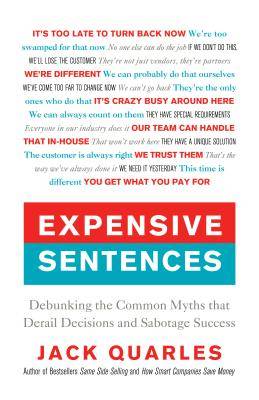
In a survey conducted by a major accounting firm and the Exit Planning Institute, six of seven business owners replied that they did not include “improving my company’s value” in their planning.
This is an amazing revelation considering that, for most business owners, their company represents 80 percent or more of their net worth and most of them will try to sell their companies to a third party upon retirement.
Why do most business owners ignore this important opportunity?
As someone who has been helping owners sell their companies for almost 20 years, I believe many business owners aren’t aware of the many ways they can increase their company’s value. Sure, everyone recognizes the obvious: work to increase sales and reduce costs. But every company’s value is affected by 18 key value drivers, and the subcomponents of these result in more than 90 important activities that affect value. The level of attention paid (or not paid) to these value drivers determines a company’s transferable value. The best part: all of them provide an opportunity to increase a company’s value.
Some of the steps that can increase value the most can take years to implement; others can be accomplished in a few weeks or months.
Here are a few examples:
Long Term: Develop a strong, functionally diverse management team.
One of the best ways to increase a company’s value is to ensure it can run without the owner. If the owner is responsible for all major operating decisions, if he or she has to be at the company daily, if the owner “brags” about not having taken a vacation in three years, the company is not easily salable. If the company does sell, it will be at a price substantially reduced from what it could have been. Buyers want to buy a “business” not a “job.”
But developing a management team takes time. The owner’s first hire might be (and probably should be) a chief financial officer. It will take months for an owner to know for sure whether this hire is the right person for the job. The scenario will play out for choosing the vice president of sales and marketing, the owner’s likely next hire, and then the director of human resources, and so on. Recruiting, hiring, training, meshing, motivating and keeping a management team will likely take two to four years or so, but its effect on increasing a company’s value will be significant.
Intermediate Term: Clean up financial statements and put in a management reporting system.
Some buyers will not even look at a company whose financial statements have not been at least “reviewed” by an independent accounting firm. Some potential business buyers require no less than an auditor’s opinion on the financial statements before they’ll talk about buying a company. Buyers get to a proposed purchase price by assessing the risk related to a possible acquisition. If the only financial information to look at is a sloppy-looking balance sheet and income statement prepared by the owner’s cousin Frank, risk warning bells will clang loudly.
Management needs much more than the basic financial statement information to effectively run a company. A robust management reporting system should report daily on the key operating metrics important to running the company. Yes, providing for high-quality financial information will have a cost, but this cost will be returned many times over by increasing management’s effectiveness in running the company and reducing buyers’ perceived risk when it’s time to sell the company.
Short-term: Dot the i’s and cross the t’s.
When selling a house, a homeowner’s potential price would likely drop if tall weeds have taken over the front lawn, trash has accumulated next to the garage and a couple of windows have been broken. Fixing these problems ahead of time readies the house to fetch its maximum value.
Along the same lines, business owners can increase their companies’ values by making sure leases, contracts, tax returns, corporate minutes and the like are complete, signed and up to date. Make sure the office, warehouse and plant are clean and orderly before potential buyers begin due diligence. Small things, yes, but they will help increase your company’s value.
In summary, owners have many opportunities beyond the obvious to increase their companies’ value. Although some of these steps require significant time to implement, others can be accomplished in a short amount of time, but to ignore the opportunity is to leave money on the table when it comes time to sell the company.
Robert J. Jirovec is the co-founder and president of CJK Securities, Inc., a Las Vegas-based regional broker/dealer specializing in providing value enhancement, sell-side representation and capital raising services to companies in the lower middle market. Contact him or explore CJK’s value enhancing software at www.cjksecurities.com.






